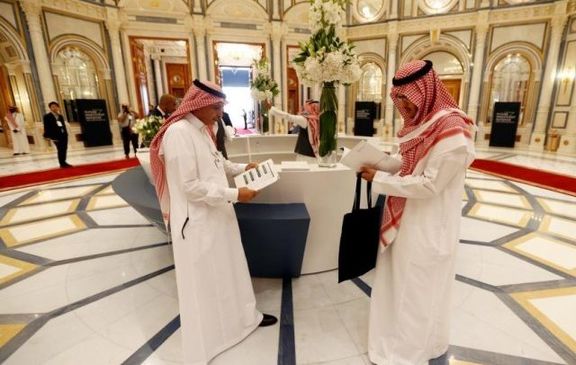Sajjad Mohseni, in an interview with the website of the Strategic Council on Foreign Relations, also referred to the annual meeting of the “Future Investment Initiative” called “Davos in the Desert” and said: Saudi Arabia recently held the fifth conference of the “Future Investment Initiative” with the participation of more than two thousand delegates and 5,000 corporate executives and investors in Riyadh. Although the event is interesting in terms of scope, this conference was not the first event of its kind.
Long-term view of investment in new areas of technology
He added: In recent years, especially with the coming to power of Mohammed bin Salman and preparation of the 2030 vision document, several economic conferences have been held focusing on new technologies. Aside from the details of the conference, several targets could be seen behind the event, which mainly reflect a long-term view of investment in the field of technology in Saudi Arabia.
The Saudi affairs expert continued: Saudi Arabia knows very well that the best way to increase its regional security is to create a network of actors who benefit from existence of that country. Accordingly, creating an “economic neural network” based on mutual sensitivity and vulnerability can be effective.
Referring to the Saudi government’s efforts to move 480 regional headquarters to Riyadh in the next 10 years, Mohseni explained: The Saudi government is trying to involve many actors and companies in this direction so that if a security threat is perceived in that country, it will follow the sensitivity and reactions of other actors. In order to achieve such target, “communication” is the most important tool.
He considered Riyadh as one of the few regional capitals with a high rate of diplomatic visits, and said: A large portion of those diplomatic visits are aimed at facilitating reciprocal economic conditions.
The analyst of Saudi affairs added: Another reason for Saudi Arabia’s attention to a long-term view of investment in fields of technology can be considered as the efforts to identify investors and innovators in line with membership and activity in the new city of “Neom”. According to the Saudi government’s long-term approach, the city of Neom not only needs new technology but also new citizens from all over the world. Citizenship in the city of Neom is done with the priority of elites and first-class citizens. Therefore, this conference can be a platform for identifying elites and consulting to attract them.
Mohseni referred to the positions of the Royal Commission of Riyadh regarding that in response to the Saudi capital’s position as the largest urban economy in the region 44 international companies have relocated their regional headquarters to Riyadh, and said: With such conferences, Saudi Arabia seeks to objectify the security of Saudi Arabia for investment. Capital is so-called coward, and many investors prefer to invest in a place that has guaranteed objective security.
He continued: Saudi Arabia’s entry into the war with Yemen, the severance of relations with Iran and Qatar, the assassination of Jamal Khashoggi and the increase in regional tensions in that country had greatly distorted the mentality of Saudi Arabia as being safe for investment. Holding the in-person conference and the multiplicity of those invited is a kind of attempt by the Saudi leaders to induce the return of Saudi Arabia to the period of stability and security.
Referring to Saudi Arabia’s insistence on suspending government contracts with any foreign company headquartered outside Saudi Arabia from early 2024, Mohseni added: Saudi Arabia, along with the United Arab Emirates, is making extensive efforts to invest in new technology infrastructures. At the heart of those investments is “artificial intelligence”. The Riyadh government needs to convince leading companies in this field to operate in Saudi Arabia; because in this way, while keeping the technology up to date in that country, it will also reduce the cost of gaining access to new technologies.
The analyst of Saudi affairs stressed that the Saudi government is well aware that one of the distinguishing features of future power is the use of new technologies.
Referring to the consequences of the Coronavirus outbreak on the Saudi economy, he said: The global Coronavirus epidemic was one of the most important factors that forced the Saudi government to reduce economic programs based on networking, now with the relative removal of this obstacle such an economy will grow, both quantitatively and qualitatively, especially since in recent years Saudi Arabia has tried to provide a conducive environment for the presence of investors from all countries by removing many economic restrictions.










0 Comments